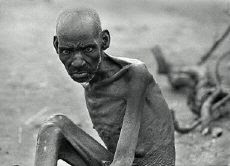International Pop Star Madonna finds a new Passion: MalawiMphandula, Malawi - The village headman here has never heard of Madonna, the pop star. But he knows Madonna the philanthropist.
Madonna has announced plans to raise at least $3-million (R20,4-million) for programmes to support the nearly one million children in Malawi who have lost parents to Aids. Mphandula's head man, who bears the same name as his village, said Thursday he had been contacted last month by organizers and told some of the money will build a feeding and education center for orphans in this village 50km from the capital.
"The orphanage project is about serving humanity. It will mean so much to us. We can only ask God to bless this person for her kindness," said Mphandula, who uses only one name.
Malawi is among the poorest countries in the world, hit by years of drought as well as an Aids epidemic. According to the National Aids Commission, the HIV and Aids pandemic has left close to a million orphans in this southern African country. Aids mainly affects the economically active age group of 15 to 49.
In most villages, many orphaned children being cared for either their slightly older siblings or grandparents.
"We have too many child-headed households here. We also have very old people looking after very young orphans. In both scenarios, food becomes a nightmare since the young ones cannot find enough to feed themselves and their siblings while the old ones do not have the power to look for food," Mphandula said.
A piece of land for the project has been identified but work has yet to begin.
Madonna joins a growing list of entertainer-activists who have focused on Africa. Angelina Jolie in Namibia and George Clooney in Darfur are among those who have given Africa money and, perhaps more importantly, shared with it the global attention their celebrity status draws.
Madonna outlined her plans for Malawi in an interview with Time magazine in its issue on newsstands Monday.
She was quoted as saying she plans to raise at least $3-million for programmes to support orphans in Malawi, and is giving $1-million to fund a documentary about the plight of children here. She is expected to visit in October.
She has also teamed up with developing-world economic expert Jeffrey Sachs on programs to improve the health, agriculture and economy of a village in Malawi, and she's met with former US President Bill Clinton about bringing low-cost medicines to the country.
Sachs has launched a series of comprehensive projects to transform villages in Africa, and Clinton last month announced a campaign against rural poverty in Malawi that will focus in part on combatting Aids.
Most of the farmers of Mphandula, where Madonna's orphan center is planned, live in mud-and-thatch huts, wear shoes only on special occasions and rarely can afford to eat meat.
The village has no electricity and only a few households have radios. No wonder few had heard of Madonna.
"I hear Madonna is coming here," said Michael Soko. The excited 24-year-old was the only one among 30 people interviewed in Mphandula who had heard of the Material Girl as entertainer.
"I know her song Holiday," he said. "We used to dance to it in school."
-story by Raphael Tenthani












